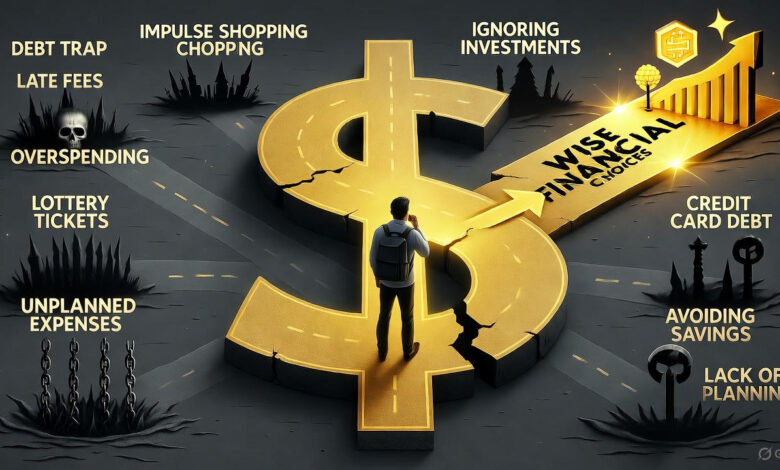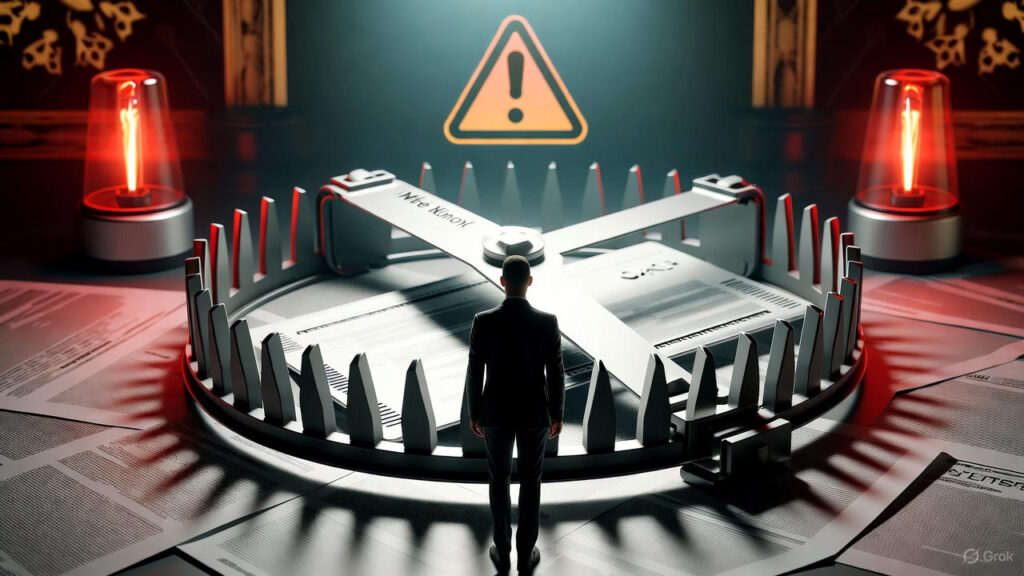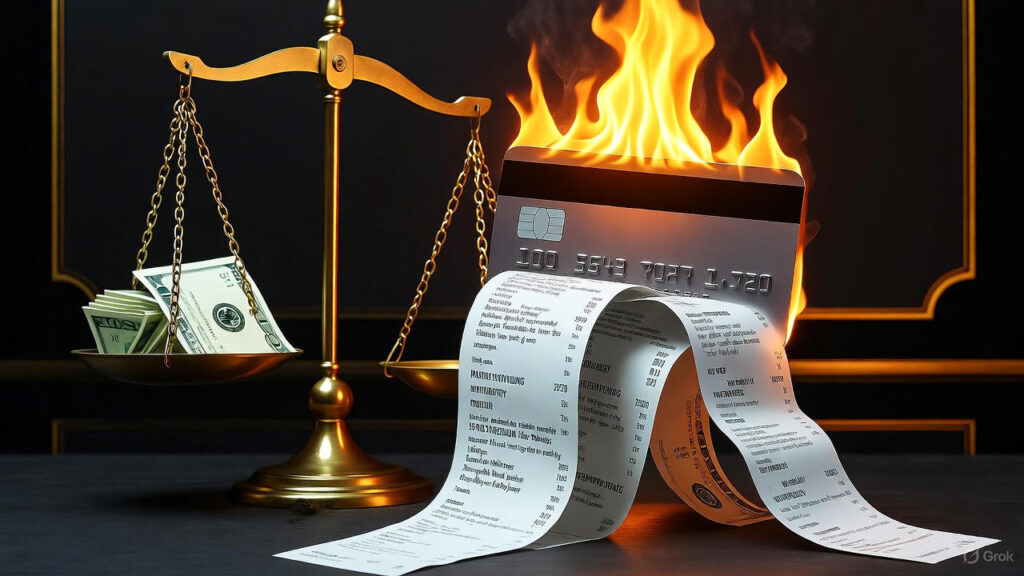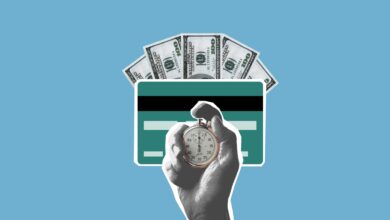14 Most Common Financial Mistakes To Avoid At All Costs

Look, I’m not going to sugarcoat this. Most of us are absolutely terrible with money.
I mean, seriously terrible. We blow through paychecks like there’s no tomorrow, rack up credit card debt faster than we can say “minimum payment,” and then wonder why we’re broke three days before payday. Been there, done that, got the overdraft fees to prove it.
Here’s the thing,, though, I’ve spent years studying finance, got my degrees, worked with countless people drowning in financial chaos, and you know what I’ve learned? Most money problems aren’t because people are dumb or lazy. They’re because nobody ever taught us the basics.
So grab your coffee (or wine, no judgment here), and let’s talk about the 14 financial mistakes that are probably draining your bank account right now. Trust me, once you recognise these patterns, your whole financial life is about to change. 🙂
What Is A Financial Mistake?
Before we get into the nitty-gritty, let’s clear something up.
A financial mistake isn’t just forgetting to save your receipt or accidentally spending $50 at Target when you only went in for toothpaste (okay, that one counts too, but bear with me). We’re talking about systematic decisions and habits that actively sabotage your financial future.
Think of it this way: if your money were a garden, financial mistakes are the weeds that choke out everything you’re trying to grow. Some weeds are obvious. Others? They’re sneaky little suckers that look harmless until they’ve taken over your entire yard.
What Are The Common Mistakes In Finance?
Right off the bat, let me tell you what most Americans are getting wrong.
The big three? Not budgeting, overspending, and treating credit cards like free money. According to research from the Consumer Federation of America, about 67% of middle-income Americans admit they’ve made bad money decisions that cost them an average of $23,000 each. That’s not pocket change, that’s a decent car or a down payment on a house!
These aren’t isolated incidents either. These mistakes compound over time, creating a snowball effect that becomes harder and harder to stop.
Dangers Of Making Financial Mistakes
Alright, let’s get real about why this stuff matters so much.
1. Making Financial Mistakes Leads To A Debt Trap

Ever heard someone say they’re “drowning in debt”? That’s not dramatic, that’s literally what happens.
I once worked with a client who had accumulated $80,000 in credit card debt on a $45,000 salary. How does that even happen? One swipe at a time, my friend. She didn’t wake up one day deciding to destroy her finances. It happened gradually, a purchase here, an “emergency” there, a bit of lifestyle inflation sprinkled on top.
Here’s what makes debt traps so vicious: the interest compounds faster than you can pay it down. You’re basically running on a treadmill that’s going faster than you can move your legs. Eventually, you’re going to fall.
When you’re considering loans, mortgages, or pulling out that shiny credit card, stop. Breathe. Do the actual math. Don’t let your emotions hijack your wallet.
2. Making Financial Mistakes Takes Away Your Peace Of Mind
Money stress is a special kind of hell.
Picture lying in bed at 2 AM, staring at the ceiling, mentally calculating if you can pay rent AND buy groceries this month. Imagine avoiding calls because you know it’s bill collectors. Imagine the pit in your stomach every time you check your bank balance.
That’s not living, that’s surviving on anxiety and caffeine.
I’ve seen people develop actual health problems from financial stress. Insomnia, high blood pressure, digestive issues, your body literally cannot function properly when you’re constantly panicking about money.
3. Making Financial Mistakes Affects Your Mental Health
Let’s talk about something people don’t discuss enough: money problems will mess with your head.
When you’re constantly stressed about finances, when you’re watching friends buy houses while you’re struggling to make minimum payments, when you’re beating yourself up for that stupid purchase you made three years ago, it takes a toll.
Depression, anxiety, relationship problems, low self-esteem, and financial mistakes don’t just empty your wallet; they can hollow you out emotionally. Sure, money doesn’t buy happiness, but financial security sure does eliminate a massive source of misery.
14 Most Common Financial Mistakes To Avoid At All Costs
Now we’re getting to the good stuff. Let’s break down the mistakes that are probably costing you thousands of dollars every year.
1. Spending More Than You Earn

Shocker, right? But hear me out, this is THE foundational mistake that causes almost every other problem on this list.
Living above your means is like trying to fill a bucket with a hole in the bottom. Doesn’t matter how much water you pour in; you’re never going to fill it up. The math is brutal and simple: if you spend $3,500 monthly but only earn $3,000, you’re going $500 deeper into debt every single month. That’s $6,000 a year you’re haemorrhaging.
Here’s the brutal truth: nobody cares if you’re wearing designer clothes if you’re also dodging collection calls.
The fix? Track every dollar for one month. Yeah, every single dollar. Morning coffee, that random Amazon purchase, the pizza you ordered at midnight, write it down. You’ll be shocked (and maybe horrified) at where your money actually goes.
Stop making impulse purchases. Create a 24-hour rule: if something costs over $50, wait 24 hours before buying it. You’d be amazed at how many “must-have” items become “meh, I don’t need that” after sleeping on it.
2. Failing To Save For Emergencies
Life is going to punch you in the face. Sorry, but it’s true.
That car you have will break down at the worst possible time. That beloved kid will need emergency dental work. Your company will downsize. Your roof will start leaking. These aren’t “if” situations, they’re “when” situations.
An emergency fund isn’t optional; it’s essential. Think of it as insurance you give yourself. The general rule is to save 3-6 months of living expenses in an easily accessible savings account (not investments, not stuffed under your mattress, an actual savings account).
Let’s do quick math: if your monthly expenses are $2,500, you need $7,500-$15,000 sitting there just for emergencies. Sounds like a lot? It is. But you know what’s worse? Going into high-interest debt when your transmission dies and you need $3,000 immediately.
Start small if you need to. Even $20 per paycheck adds up. Set up automatic transfers so you never see the money, can’t spend what’s not in your checking account, right?
3. Living Without A Budget

Oh boy, here’s where people get defensive. “Budgets are restrictive!” “I know what I spend!” “I don’t need to track every penny!”
Sure, and I don’t need GPS because I know where I’m going. Until I’m lost in the middle of nowhere at midnight. :/
A budget isn’t a prison; it’s a roadmap. It tells your money where to go instead of wondering where it went. Without a budget, you’re financial planning is with your eyes closed.
Here’s how to start (and I’m keeping this stupid simple):
- List all income sources: Paycheck, side hustle, that random $20 your grandma gives you, everything.
- List all fixed expenses: Rent, utilities, insurance, loan payments, and the stuff you pay no matter what.
- List all variable expenses: Groceries, gas, entertainment, and that subscription you forgot you had.
- Include savings goals: Emergency fund, retirement, vacation fund, yes, savings is an expense now.
- Do the math: Income minus all expenses. If this number is negative, you’ve found your problem.
Use an app like Mint or YNAB if you want to get fancy. Or use a spreadsheet. Or even pen and paper. The tool doesn’t matter; actually doing it matters.
4. Failing To Plan For Retirement
“I’ll worry about retirement later.”
No. No, no, no. Future-you is going to be really mad at present-you for this one.
Look, I get it. Retirement feels like this far-off thing that doesn’t matter when you’re 25 or 30 or even 40. But here’s the thing about compound interest: it’s either your best friend or your worst nightmare, and time is the secret ingredient.
Let me show you why starting early matters:
If you invest $200/month starting at age 25, by age 65 (assuming 7% annual return), you’ll have roughly $525,000. If you wait until 35? You’ll have about $245,000. That 10-year delay just cost you $280,000. Let that sink in.
At a minimum, contribute enough to your 401(k) to get the full employer match. That’s literally free money. Turning down an employer match is like your boss trying to hand you cash, and you slapping it out of their hand.
No employer retirement plan? Open an IRA (Individual Retirement Account). Vanguard and Fidelity make it ridiculously easy. Stop making excuses.
5. Postponing Your High-Interest Debt Payments
Debt with high interest rates is like a financial vampire; it bleeds you slowly while you’re not paying attention.
Credit card interest rates average around 16-24% APR. Let’s put that in perspective: if you have $5,000 in credit card debt at 20% interest and only make minimum payments, you’ll take over 20 years to pay it off and pay over $6,000 in interest alone. You’re literally paying double.
The debt avalanche method is your friend here. List all your debts by interest rate, highest to lowest. Pay minimums on everything, then throw every extra dollar at the highest-rate debt. Once that’s gone, move to the next highest.
I know this sucks. I know you’d rather use that money for literally anything else. But every month you delay is another month of throwing money into a black hole. Attack your high-interest debt like it insulted your mother.
6. Buying New Cars Without Planning

Let’s talk about cars, one of the biggest wealth killers out there.
A new car loses about 20-30% of its value the moment you drive it off the lot. Then it loses another 15-25% per year for the next few years. So you’re taking out a loan, paying interest on a depreciating asset, and watching your money evaporate.
Here’s what kills me: people financing $40,000 cars on $50,000 salaries. That’s madness. Your car shouldn’t cost more than 50% of your annual income, and honestly, that’s pushing it.
Want to buy a car? Cool. Save for it. Set it as a financial goal. Put aside money monthly until you can pay cash or at least put down a massive down payment.
And consider buying used. A 2-3 year old car in good condition gives you most of the benefits at a fraction of the price. Let someone else take the depreciation hit.
7. Not Having Good Insurance Coverage
Insurance is one of those things you hate paying for until you desperately need it.
I’m talking about health insurance, life insurance, disability insurance, homeowners/renters insurance, and auto insurance. Yes, it’s expensive. You know what’s more expensive? Medical bankruptcy. Losing your home. Your family is struggling financially after you’re gone.
Let me share something personal: A friend of mine skipped health insurance because she was young and healthy. Then she got in a car accident. Her medical bills? Over $75,000. She’s still paying them off five years later. That’s not a scare tactic, that’s real life.
Review your insurance coverage annually. Life changes: you get married, have kids, buy a house, and start a business. Your insurance needs to keep up. Talk to an independent insurance agent (not someone tied to one company) to find the best coverage for your situation.
8. Not Paying Attention To Your Credit Scores
Your credit score is like your financial report card, except it actually matters in adult life.
This three-digit number (ranging from 300-850) affects everything: your ability to get loans, your interest rates, whether you can rent that apartment, and sometimes even job opportunities. Ignoring it is like ignoring a check engine light; things might seem fine now, but you’re headed for a breakdown.
What hurts your credit score?
- Late or missed payments
- High credit utilisation (using too much of your available credit)
- Too many hard inquiries in a short time
- Collections accounts
- Bankruptcies or foreclosures
What helps your credit score?
- Paying everything on time (set up autopay!)
- Keeping credit utilisation below 30% (preferably under 10%)
- Having a longer credit history
- A good mix of credit types
- Fewer hard inquiries
Check your credit report for free at AnnualCreditReport.com (the only official free site). Look for errors; they happen more often than you’d think. Dispute anything wrong.
9. Not Investing
Keeping all your money in a savings account is actually losing you money. Seriously.
With inflation running around 3-4% annually (sometimes more), your money in a savings account earning 0.5% interest is losing purchasing power every year. What costs $100 today will cost $103-104 next year, but your savings only grew to $100.50. You’re getting poorer in real terms.
FYI, investing isn’t just for rich people or Wall Street bros in fancy suits. Anyone can start with platforms like Robinhood, Betterment, or Acorns.
Start with index funds; they’re diversified, low-cost, and don’t require you to pick individual stocks. An S&P 500 index fund gives you exposure to 500 of the largest U.S. companies. Historically, the stock market returns about 10% annually (over long periods).
Don’t know where to start? Put $50 in a target-date retirement fund and go from there. The biggest mistake isn’t picking the wrong investment; it’s not investing at all.
10. Living Without Savings Goals
Saving without a purpose is like running without a destination; you’ll get tired and quit.
Savings goals give your money meaning. They transform “I should save” into “I’m saving for a down payment on a house”, or “I’m building a $10,000 emergency fund”, or “I’m saving for a trip to Japan.”
Break big goals into smaller milestones. Trying to save $15,000 feels overwhelming. Trying to save $1,250 per month for a year? Still challenging, but more tangible. Celebrate hitting each milestone; it builds momentum.
Some goal ideas:
- Emergency fund (3-6 months expenses)
- Down payment on a house
- New car fund
- Vacation fund
- Wedding fund
- Starting a business
- College fund for kids
Make your goals SMART: Specific, Measurable, Achievable, Relevant, and Time-bound. “Save more money” is vague. “Save $500 per month for 12 months to build a $6,000 emergency fund” is a plan.
11. Living On Borrowed Money
If you’re using credit cards to buy groceries because you ran out of actual money, we need to talk.
Living on credit is living beyond your means with extra steps (and massive interest charges). You’re not just spending more than you earn, you’re spending money you don’t have and paying a premium for the privilege.
Credit card companies love people like this. They make billions from folks who carry balances month to month. That “minimum payment” option? It’s designed to keep you in debt for decades.
The solution is harsh but necessary: cut up the credit cards (or freeze them in a block of ice if you need them for emergencies), drastically reduce your expenses, and start living on cash or debit only. It’s going to suck. You might have to give up luxuries. But it’s temporary pain to avoid permanent financial disaster.
Need help cutting expenses? Cancel unused subscriptions, cook at home, find free entertainment, negotiate bills, and use the library. There’s an entire Mr Money Moustache blog dedicated to this stuff.
12. Spending Too Much On Your House
Your house should be a home, not a financial prison.
The old rule was to spend no more than 30% of your gross income on housing. But honestly, in today’s economy, aiming for 25% or less gives you much more breathing room.
If you’re earning $4,000/month, your rent/mortgage shouldn’t exceed $1,000-$1,200. I can hear the protests already: “But I can’t find anything for that price!” Then you need to adjust, get a roommate, move further out, downsize, something.
I see people stretching to afford houses they can’t maintain, in neighbourhoods they can’t afford, to impress people they don’t like. It’s insanity. Your house shouldn’t require you to be house-poor.
If you have a mortgage, make extra principal payments when possible. Even an extra $100/month can shave years off your loan and save tens of thousands in interest. Use a mortgage calculator to see the impact.
13. Living Paycheck To Paycheck
When you’re counting down days until payday, you’re on a financial treadmill.
As of recent data, the U.S. household savings rate hovers around 4-5%, meaning most families are barely scraping by. This isn’t always overspending; sometimes you’re genuinely underpaid.
If you’re doing everything right, budgeting, cutting expenses, living frugally, and still barely making it, you need more income. Period.
Options:
- Ask for a raise (document your achievements first)
- Find a higher-paying job
- Start a side hustle (Upwork, Fiverr, driving for Uber, tutoring, freelance writing)
- Sell stuff you don’t need
- Pick up overtime at work
I’m not saying work yourself to death. But temporary hustling to get out of paycheck-to-paycheck mode is worth it. Once you build a buffer, you can ease off the gas.
14. Paying Off Debt With Savings
This one seems logical, but it’s usually a mistake.
Your emergency fund is called an “emergency” fund for a reason. It’s not a “pay off debt” fund or an “I really want this thing” fund. It’s insurance against life’s curveballs.
If you drain your savings to pay off debt, what happens when your car breaks down next month? Right back into debt, except now you have no cushion. It’s two steps forward, three steps back.
Instead, use the debt avalanche or debt snowball method while keeping your emergency fund intact. Pay minimums on everything, throw extra money at one debt at a time, and leave your savings alone except for actual emergencies.
Your retirement accounts are definitely off-limits. Raiding your 401(k) to pay debt triggers taxes, penalties, and robs future-you of compound growth. Don’t do it.
Final Thoughts
Nobody’s perfect with money, mistakes happen. What matters is recognising them and correcting course. Financial success is built on small fixes, not perfection.
Pick one or two mistakes and start there. Create a budget, build an emergency fund, face your debt, just take the first step and keep moving.
Your future self depends on today’s choices. Check your bank account, choose a mistake to fix, and go get your financial freedom.








